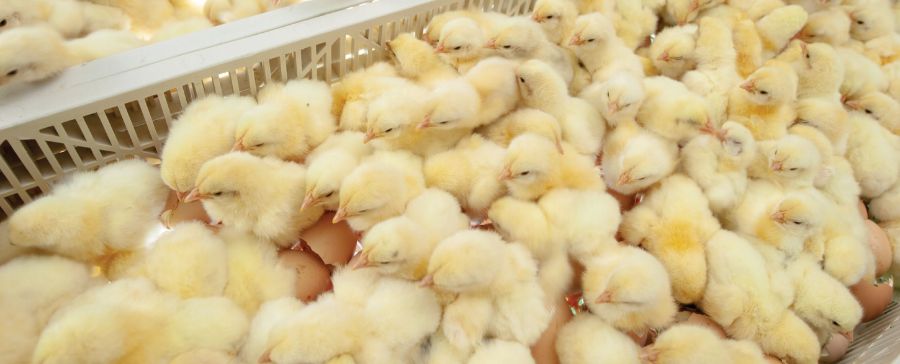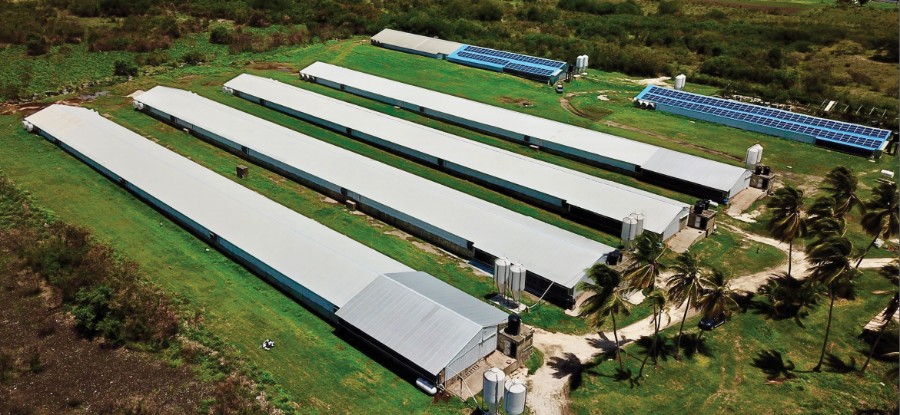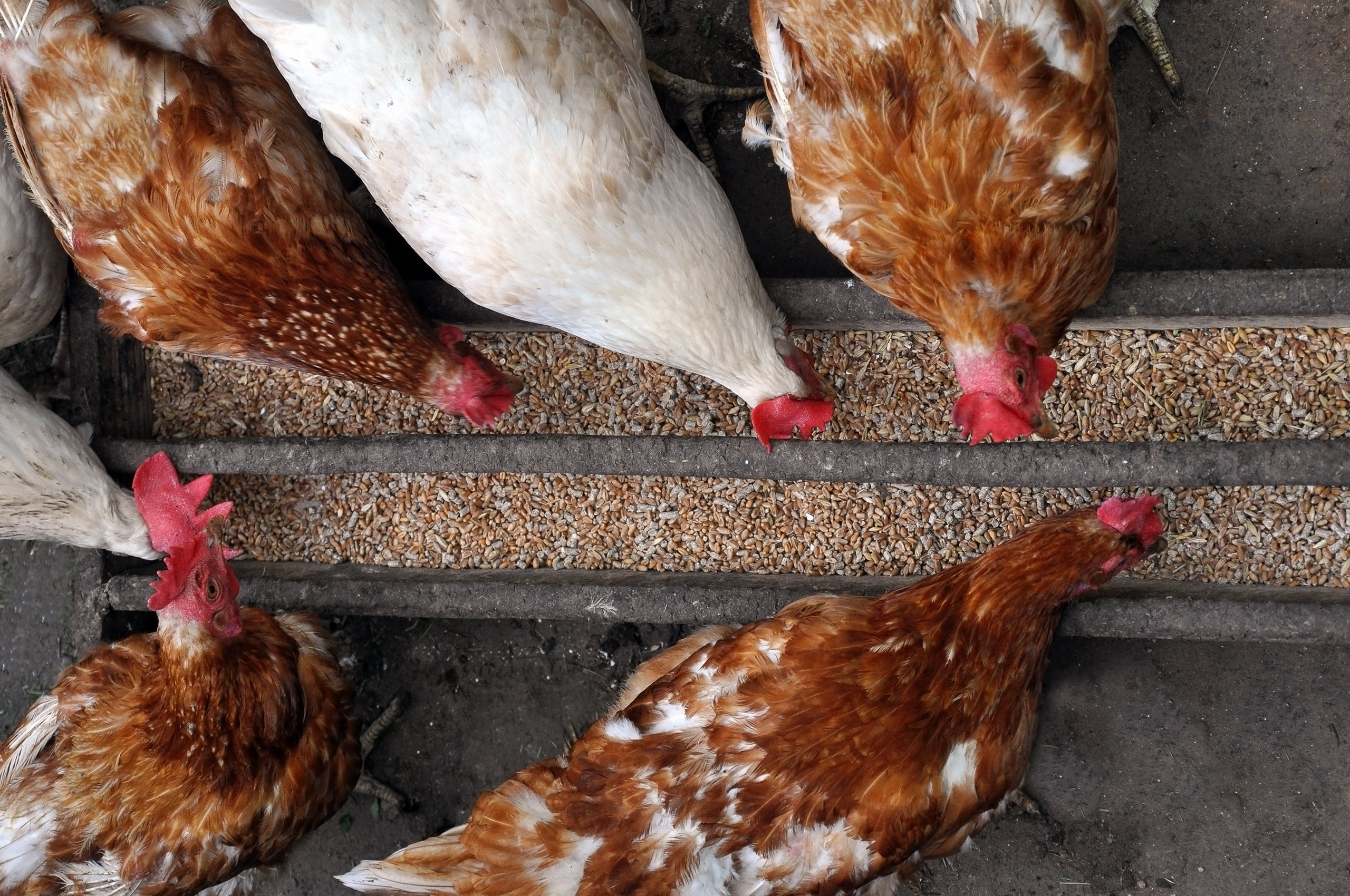
FARMING LIFE

Biosecurity & Sanitation
Sanitary conditions are top priority. Before a vehicle can enter the hatchery compound it must pass through a sanitation wash. All work areas are sanitised and scrubbed each day to ensure that the eggs and chicks are processed in a bio-secure conditions.
Egg Procurement
Hatching eggs are imported from the USA and transported to the hatchery by truck. They are then put into setting trays by the hatchery staff.
Setting Eggs
Setting buggies of hatching eggs into multi-stage setters.
Hatching Eggs in Setters
Temperature and humidity are electronically controlled during the incubation and the egg are turned once every hour to stop the developing embryo from sticking to the shell membranes.
Transferring Eggs to Hatcher Machine
Eggs are transferred from the setters to the hatchers 19 days after setting.
Chicks Hatch
At 21 days, all the chicks start to hatch, from there they are graded and sorted by flock and are prepared shipment to the farms. Only the healthiest chicks are delivered to our farmers.

Broiler chicks arrive on our family of farms from the hatchery and are immediately given feed and water, which affords the livestocks a smooth transition from the hatchery environment to farm.
We raise our birds in computerised tunnel ventilated houses, where we are able to monitor and control the birds' welfare through the use of computers that produce real-time environmental data such as: water consumption, house temperature and humidity. We are constantly communicating with our growers and our feed supplier to ensure that no antibiotics, hormones or steroids are introduced into our birds' feed and water supply. Upon reaching market age at about 5 weeks, birds are caught for processing.
We raise our birds in specialized, enclosed poultry houses to protect them from bad weather, diseases and predators. We do not use cages and the broilers can move around freely with full access to vegetarian feed and water, and to express normal behaviour.
Our Poultry houses are equipped with specially designed equipment to deliver balanced feeding rations and fresh water to ensure the birds receive the correct nutritional requirements to meet the growth and production needs throughout their lives. The floor the houses are covered with plant-based recyclable materials, such as wood shavings. The barns also use automatic equipment to provide lighting and ventilation to maintain a climate-controlled environment that is suitable for the bird's age.
After grow out, we wash and completely sterilise our houses to prevent disease and bacteria from growing and infecting any subsequent flocks. This process is considered "rest" for our pens and lasts a few weeks until we place another flock back in the house.

We partner with a feed supplier who guarantees and tests their ingredients used to manufacture our high-quality feed. Our feeds are free from antibiotics which allows us to grow high-quality chickens.
We discontinued the use of antibiotics in our feeds 30 years ago because evidence shows that humans build a tolerance to the same antibiotics vets prescribe chickens when helping them recover from their sickness. Hormones and steroids used in the acceleration of the bird's growth rates are harmful as well because they aid the birds' growth unnaturally.

 +1 246 418-8000
+1 246 418-8000 info@omniwizard.com
info@omniwizard.com Chickmont Foods Ltd
Chickmont Foods Ltd 
 ONLINE SHOP
ONLINE SHOP







